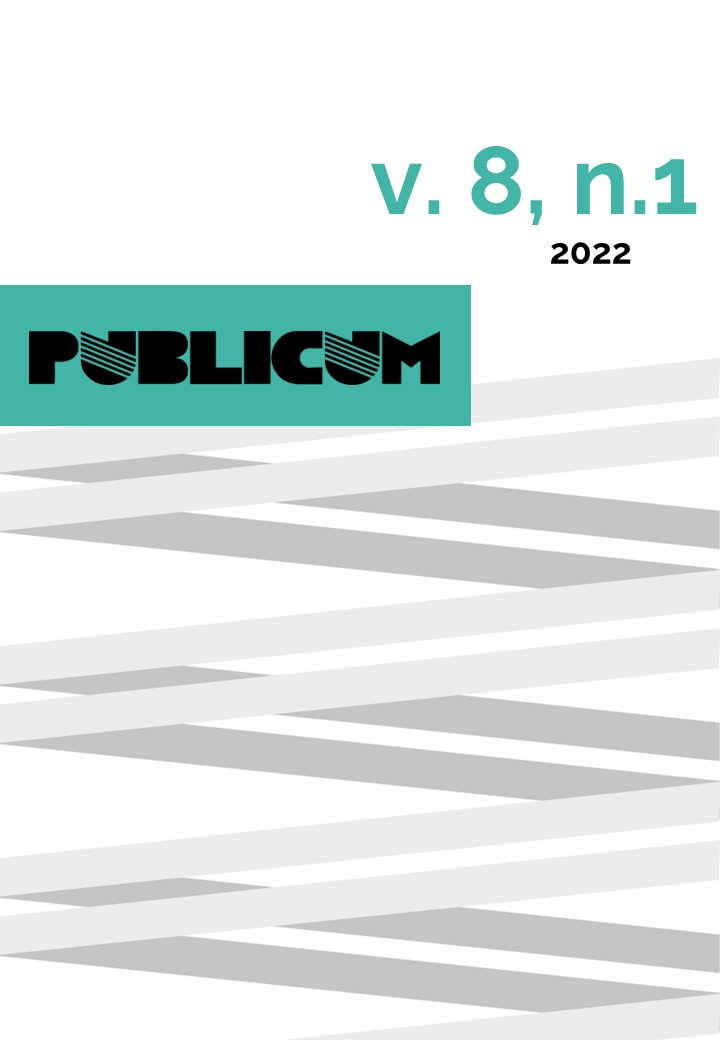Uma análise sobre o controle de convencionalidade brasileiro à luz da dimensão preventiva da educação em direitos humanos
DOI:
https://doi.org/10.12957/publicum.2022.74030Palabras clave:
Direitos Humanos, Controle de Convencionalidade, Poder Judiciário, Educação em direitos humanos.Resumen
O presente artigo almeja analisar o potencial transformador e emancipatório da educação em direitos humanos (EDH) no marco do controle de convencionalidade exercido pelo estado brasileiro, integrante do sistema regional americano. Questiona-se de que modo a dimensão preventiva da EDH contribui para a efetivação dos direitos consagrados em tratados internacionais e também construídos pela via hermenêutica. A pesquisa possui natureza exploratória e descritiva, com abordagem predominantemente qualitativa. Vale-se ainda de extensa pesquisa bibliográfica e documental. Constitui-se como prioridade deste texto, em momento preliminar, a compreensão dos direitos humanos, dos sistemas internacionais de proteção e do processo interamericano averiguatório da responsabilidade estatal por violação a direitos humanos. Na sequência, será enfatizada a doutrina do controle de convencionalidade sob os vieses histórico, normativo e conceitual, para então compreender os desdobramentos oriundos das correntes doutrinária e jurisprudencial em relação ao status hierárquico das convenções de direitos humanos incorporadas ao ordenamento jurídico do Brasil. Por último, discutir-se-á acerca da EDH em sua dimensão preventiva e quais os desafios a serem contornados pelo Poder Judiciário para promover o diálogo das fontes e das jurisdições (interna e internacional) em prol da tutela da dignidade humana. Conclui-se ser factível vislumbrar o controle de convencionalidade à luz da EDH, uma vez que a proteção dada aos direitos fundamentais se torna mais acentuada.
Descargas
Publicado
Cómo citar
Número
Sección
Licencia
O autor do trabalho declara conhecer e concordar com as regras a seguir:
1) Realizou o trabalho apresentado à revista, sendo inteiramente responsável pelas ideias e conceitos nele emitidos, que não correspondem, necessariamente, ao ponto de vista dos Editores de Publicum.
2) Obedeceu, na realização do trabalho, os princípios éticos aludidos na política de avaliação da revista[RDN1] .
3) Assume a autoria e a responsabilidade pela obra, declarando que ela não infringe quaisquer direitos de propriedade intelectual de terceiros.
4) Responsabiliza-se, integralmente, por danos de natureza moral ou patrimonial que a veiculação da obra venha a gerar a terceiros.
5) Cede à revista os direitos de reprodução, edição e primeira publicação do trabalho em qualquer meio midiático, em particular sob forma digital, em arquivo eletrônico online na internet.
6) Confere aos Editores o direito de modificar o texto apresentado, sem prejuízo de seu conteúdo, quando necessário para uniformizar a apresentação dos trabalhos e para atender as normas de edição próprias da revista.
7) Concorda com a forma final do trabalho aprovada pela revista.
8) Autoriza a divulgação do trabalho nos canais de comunicação da Faculdade de Direito da UERJ.
9) Concorda com a reprodução de pequenos trechos do trabalho em outras publicações da UERJ.
10) Reconhece que, pela cessão e autorizações acima referidas, não receberá remuneração sob qualquer modalidade, tendo estas o caráter de colaboração científica.
11) Tem ciência de que a publicação do trabalho poderá ser recusada caso não considerada conveniente, por qualquer motivo que seja, sendo que tal recusa não gera responsabilidade e/ou ônus de espécie alguma à revista ou UERJ.
[RDN1]Ver COPE.

Publicum está licenciado com uma Licença Creative Commons Atribuição-NãoComercial 4.0 Internacional.

